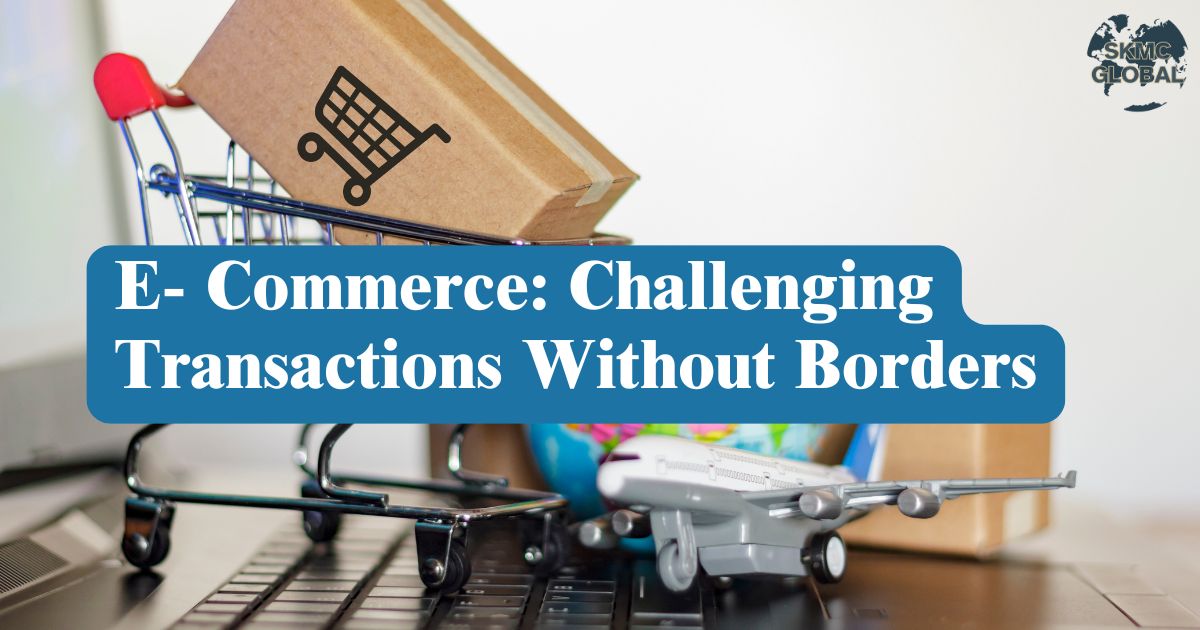
E- Commerce: Challenging Transactions Without Borders
E-commerce goes at lightning speed Borders hardly count when one company can send a product across half the globe with a mouse click. And this poses such a massive hurdle for tax offices. Where would companies pay their taxes? What would be shared between countries if profits were sliced? That's where transfer pricing becomes an extremely important issue.
Digital Presence Without Geographical Borders
Physical offices, factories, or warehouses are needed for traditional businesses to function but E-commerce firms don't require such physical presence. The Companies can earn revenues in a country without establishing any physical office in the country. This complicates the task of tax authorities in determining where the profits must be taxed.
Intangible Assets and IP Valuation
For most e-commerce titans, the true value is in things you can't see—intellectual property, brands, algorithms, and customer information. But how do you put a price on something like an algorithm or a brand name? That's where things become complicated. Most companies relocate their intellectual property (IP) to low-tax jurisdictions, creating controversies with tax authorities over profit splitting.
The Role of Intercompany Transactions
Ecommerce companies function between various countries, so they usually have intercompany transactions. These may encompass:
- Intellectual property licensing (such as software and branding)
- Common services (for example, IT, marketing, and logistics)
- Financing and intercompany loans
Every one of these transactions requires an equitable price—a term tax administrations use to describe an "arm's length price." If improperly set, tax controversy is certain to ensue.
Customer Data and Transfer Pricing Consequences
Customer data is digital gold. It aids businesses in targeted advertising, offering customized shopping, and forecasting consumers' behavior. But how can customer data be priced? What are the optimal ways to split data-driven advertisement profits? Tax authorities are trying to figure that out, and businesses are getting increasingly scrutinized for how they value and employ data.
OECD's BEPS and International Tax Reforms
Governments all over the world are attempting to keep pace with digital companies. The OECD Base Erosion and Profit Shifting (BEPS) initiative is attempting to put an end to tax evasion and tax companies on a fair basis in the nations in which they have operations. Governments across the globe have instituted digital services taxes (DSTs) to guarantee that they receive a fair share of the revenue. The OECD's global minimum tax under BEPS Pillar Two, on the other hand, is transforming the way firms design transfer pricing strategies.
Solutions and Best Practices for E-Commerce Businesses
With mounting scrutiny, e-commerce businesses must reconsider their transfer pricing policies. Some best practices are:
a) Having Strong Documentation: Well-documented intercompany transactions can support pricing and compliance.
b) Advance Pricing Agreements (APAs): Signing APAs with tax authorities can ensure certainty and avoid disputes.
c) Re-thinking IP Structures: Companies must ensure that their intellectual property (IP) assets reflect true economic activity.
d) Compliance through Technology: Artificial intelligence-based solutions and automation can assist companies in monitoring compliance and changing strategies accordingly.
Conclusion
The era of e-commerce has changed the manner in which we conduct business. But with this virtual growth comes the issue of equitable taxation. Transfer pricing is at the forefront of how profits are shifted, and authorities are cracking down to prevent unfairness. Firms have to keep ahead of changing tax regulations, adjust to worldwide tax reform, and keep their pricing schemes grounded in economic reality. Technology, regulations, and the continuous battle between firms and tax administrations will determine the future of transfer pricing in online shopping.
Recent Posts
-
 E- Commerce-Challenging Transactions Without Borde...
Mar 20,2025
E- Commerce-Challenging Transactions Without Borde...
Mar 20,2025
-
 Form 10F...
Mar 04,2025
Form 10F...
Mar 04,2025
-
 THE NEW INCOME TAX BILL, 2025...
Feb 24,2025
THE NEW INCOME TAX BILL, 2025...
Feb 24,2025
-
 TDS Amendments...
Feb 14,2025
TDS Amendments...
Feb 14,2025
-
 What is an Income Tax Clearance Certificate (ITCC)...
Oct 02,2024
What is an Income Tax Clearance Certificate (ITCC)...
Oct 02,2024
-
 Introduction to Cross-Border Taxation...
Apr 13,2022
Introduction to Cross-Border Taxation...
Apr 13,2022
-
 The Importance of Transfer Pricing for Multination...
Mar 16,2022
The Importance of Transfer Pricing for Multination...
Mar 16,2022
